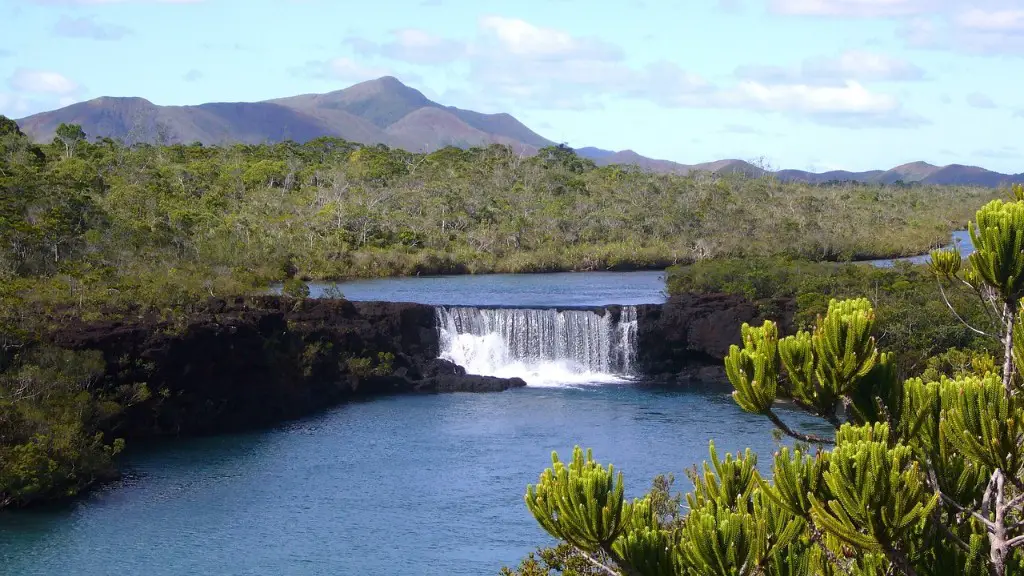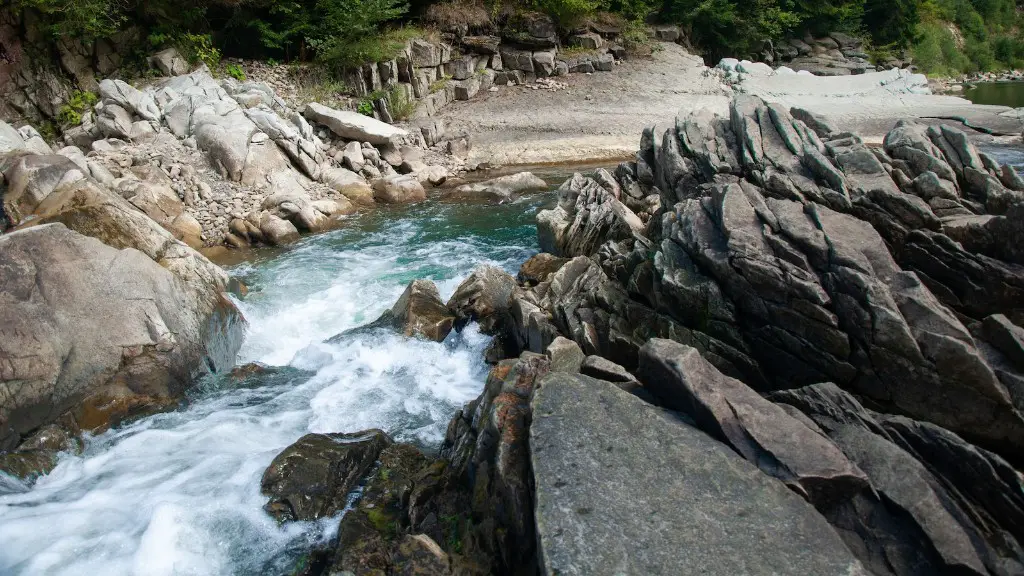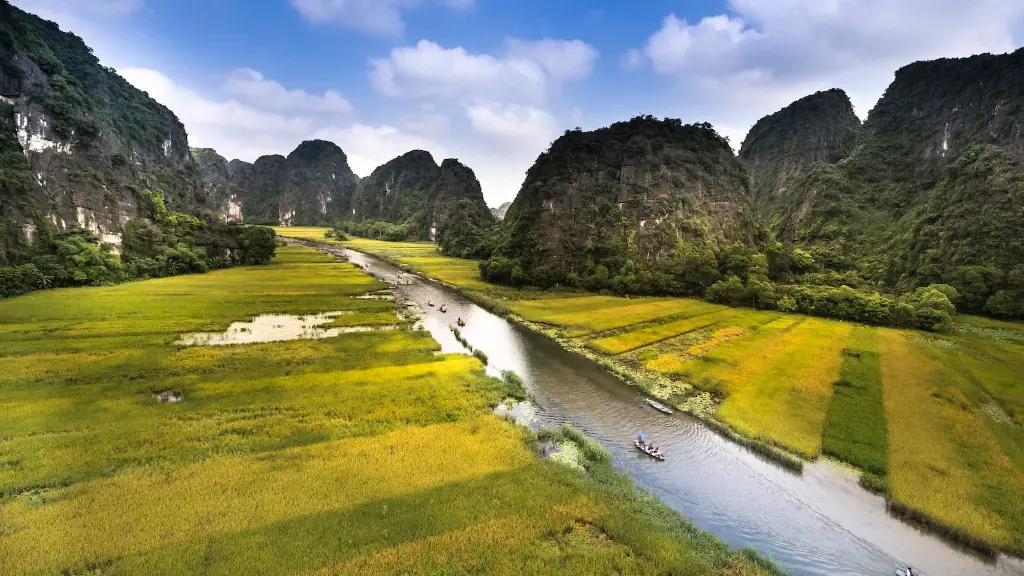Spanning 3,734 km long and draining 32 US States and 2 Canadian provinces, the Mississippi River is the fourth longest river system in the world and second longest in North America. After the Amazon River in South America, it is the most heavily used rivers for human activities.
Since the beginning of human settlement in the region, the Mississippi River has been a valuable resource for the people who live near or use it. Over time, people have utilized the immense waterway for a variety of uses, such as transportation, irrigation, drinking water, hydro-power, and recreation.
For expansive agricultural areas reliant on river flooding to fertilize the soil, the benefits of living near the Mississippi River have been immeasurable. A majority of the cropland for the country’s leading agricultural commodities is within the Mississippi River basin. The region produces over 50% of the US corn, soybeans, cotton, wheat and much of its other agricultural outputs.
The river also plays an extensive role in transportation, providing the most cost-efficient, fuel-efficient and time-effective option to move goods throughout the region. Barges are used to transport coal, oil, grain, fertilizer, and other commodities downstream from the Midwest to the South and Gulf Coast. It is estimated that two-thirds of all barges carry agricultural products in the US.
The mighty Mississippi also serves as source of hydropower. The US Army Corps of Engineers operate several large hydroelectric plants along the river, accounting for about 5 percent of the nation’s total hydroelectric generation each year.
For thousands of years, native Americans have lived and thrived near the Mississippi River engaging in fishing and hunting. Native species still depend on the river system as a source of food and habitat. It is estimated that over 500 species of fish live in the river, including catfish, sturgeon, bass and other freshwater species.
In addition to providing food, water and energy, the Mississippi River also plays an important role in local economies, providing jobs and recreational opportunities. People across the country flock to the Mississippi River to fish, boat, and explore its unique towns, museums, and landmarks, injecting approximately $7 billion dollar into the economy annually.
Impact of Climate Change
Climate change has already had a profound impact on the Mississippi River Basin. Warmer air and surface water temperatures, caused by rising global temperatures, are changing river flows, increasing erosion and flooding. These changes threaten to disrupt the nation’s water management infrastructure, infrastructure that is vital to industry, agriculture, and even drinking water supplies.
The US Army Corps of Engineers released a report in 2011 that assessed the risks posed by climate change to the Lower Mississippi River. The report found that in lower Mississippi region, droughts are projected to become more frequent and more severe over the next 50 years. flood events are also expected to become larger and more frequent, posing a serious threat to the local economy.
The report also found that, because of changes in land use, increased erosion and a hotter, drier climate, the ecosystem of the river is also at risk. Changes in water flow can harm fish and wildlife and the native species they support. The report concluded that if the region fails to adequately address these issues, the area’s economy, ecology, and human health will suffer.
River Conservation Efforts
Given the importance of the Mississippi River for so many different uses and species, there are a variety of initiatives designed to protect, improve and conserve the river. One of the most prominent initiatives is the Mississippi River Delta Restoration Program. The program, launched in 2008, is a cooperative effort to restore the wetlands, reduce pollution, and protect the river from human-caused damage.
Another significant effort is the Mississippi River Cities and Towns Initiative (MRCTI), which brings together over 140 cities and towns in the US and Canada in an effort to promote sustainable management of the river. The initiative focuses on providing education, sharing best practices and advocating for policy changes.
At the local level, numerous non-profit organizations and individual citizens have taken up the cause to preserve and protect the river, leading efforts to clean up pollution and restore wetlands, streams and lakes. Residents are also engaging in river-friendly activities, such as planting native vegetation along the banks of the river, creating buffer zones and helping to reduce the amount of agricultural runoff that reaches the river.
Government Action
Given the scope of the damage to the Mississippi River, government action is needed to improve the river’s health. In 2015, the US Environmental Protection Agency (EPA) released a strategy to address the many problems facing the Mississippi River. The strategy promotes an integrated, ecosystem-based approach to managing the river, incorporating best practices for restoring and protecting water quality, wetlands, fish and wildlife habitat, and other resources.
The strategy calls for improved management of the river’s water, enhanced public involvement and education, better monitoring of pollutants, increased funding for restoration efforts, and better coordination among the states in the region. In 2016, the EPA approved funding to implement the strategy, which includes research and monitoring, conservation projects, and public outreach and education.
Conclusion
From providing essential drinking water to aiding agricultural production and fueling the local economy, the mighty Mississippi River has always been an invaluable resource for the region. With government action and local conservation efforts, the river can continue to play a vital role in the communities it sustains.



